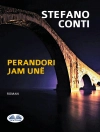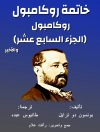The Man Who Knew Too Much – G. K. Chesterton – The Man Who Knew Too Much and other stories (1922) is a book of detective stories by English writer G. K. Chesterton, published in 1922 by Cassell and Company in the United Kingdom, and Harper Brothers in the United States.[1][2][3][4] The book contains eight connected short stories about ‘The Man Who Knew Too Much’, and additional unconnected stories featuring separate heroes/detectives. The United States edition contained one of these additional stories: ‘The Trees of Pride’, while the United Kingdom edition contained ‘Trees of Pride’ and three more, shorter stories: ‘The Garden of Smoke’, ‘The Five of Swords’ and ‘The Tower of Treason’.Gilbert Keith Chesterton, KC (29 May 1874 14 June 1936), was an English writer, poet, philosopher, dramatist, journalist, orator, lay theologian, biographer, and literary and art critic. Chesterton is often referred to as the ‘prince of paradox’. Time magazine has observed of his writing style: ‘Whenever possible Chesterton made his points with popular sayings, proverbs, allegoriesfirst carefully turning them inside out.’Chesterton is well known for his fictional priest-detective Father Brown, and for his reasoned apologetics. Even some of those who disagree with him have recognised the wide appeal of such works as Orthodoxy and The Everlasting Man.
เกี่ยวกับผู้แต่ง
Gilbert Keith Chesterton was an English writer, philosopher, lay theologian, and literary and art critic.He was educated at St. Pauls, and went to art school at University College London. In 1900, he was asked to contribute a few magazine articles on art criticism, and went on to become one of the most prolific writers of all time. He wrote a hundred books, contributions to 200 more, hundreds of poems, including the epic Ballad of the White Horse, five plays, five novels, and some two hundred short stories, including a popular series featuring the priest-detective, Father Brown. In spite of his literary accomplishments, he considered himself primarily a journalist. He wrote over 4000 newspaper essays, including 30 years worth of weekly columns for the Illustrated London News, and 13 years of weekly columns for the Daily News. He also edited his own newspaper, G.K.s Weekly.Chesterton was equally at ease with literary and social criticism, history, politics, economics, philosophy, and theology.












